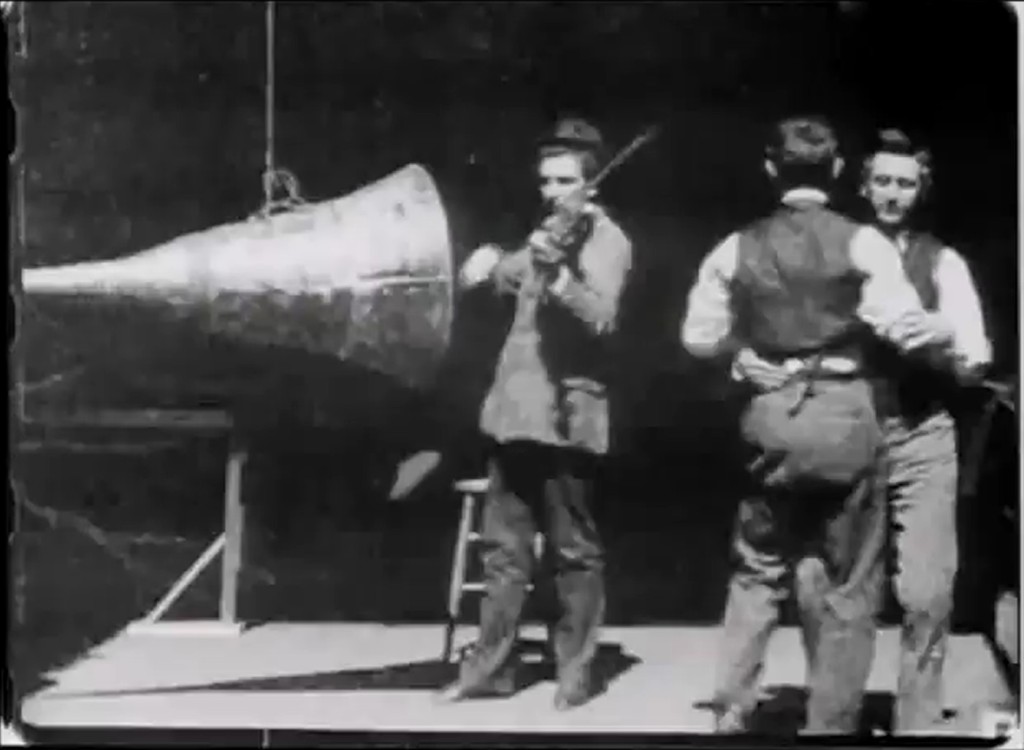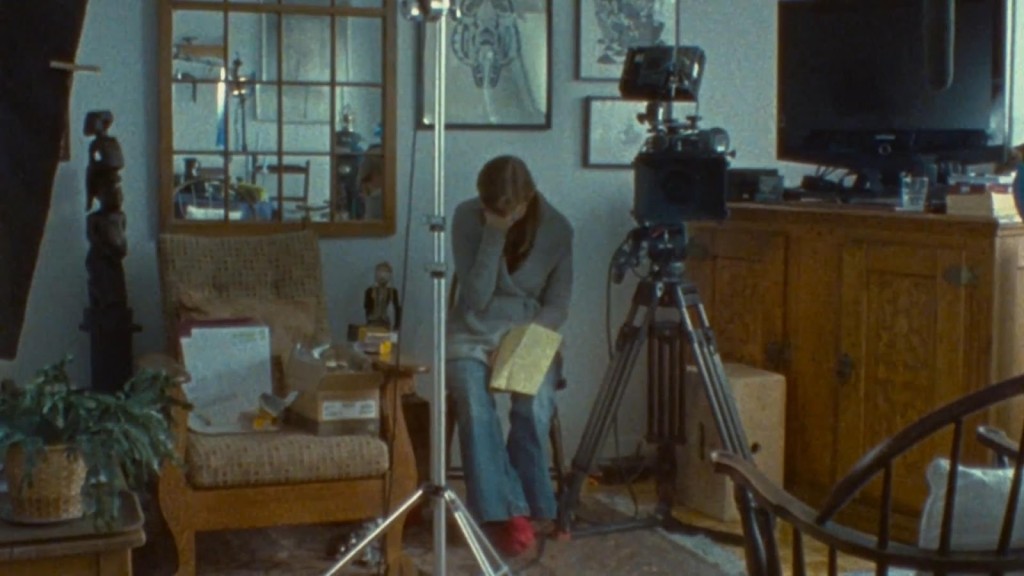BSR’s 5 Favourite Documentary Films
BSR’S TOP 5 DOCUMENTARIES
With the Toronto Hot Docs festival just days away, Black Sheep Reviews takes a look at five of its favourite documentary films. I assume the selections will surprise you as even I was surprised when I sat down to narrow down the options. I can safely say that these five films are certainly not the best documentaries of all time but, of the ones I’ve seen, they are certainly my favourites, as they have all left distinct impressions on me and still affect me to this day.
In alphabetical order, these are BSR’s five favourite documentary films …
BOWLING FOR COLUMBINE
Say what you will about Michael Moore – in fact, whatever you have to say is likely to be just – but before he became the big shot he is today, and before his intentions and tactics became questionable at best, he made a movie that fit his sardonic yet sympathetic tone perfectly. BOWLING FOR COLUMBINE not only made Moore a household name but it also bravely tackles a topic that no one was willing to touch at the time, gun control and gun violence in America. The Columbine school massacre brought attention to the subject on a national scale but America has always been reluctant to actually discuss the factors that have led to their violent tendencies, let alone go anywhere near suggesting gun reform. Moore makes the topic, while unquestionably horrifying, somewhat digestible, which allows the subject to permeate viewers’ minds in ways it hadn’t before. Watching the film 12 years after its initial release is even more tragic when you consider how much more devastating violence there has been since and how reluctant the American government still is to really do anything about it. If Charlton Heston were alive and well today, he would probably even be proud.
THE CELLULOID CLOSET
Filmmakers, Rob Epstein and Jeffrey Friedman, changed my life with THE CELLULOID CLOSET, an extremely detailed and revealing look at the history of gays and lesbians in American film. Of course, if I had been a bigger reader at the time, it would have been Vito Russo, the author of the book the film is based upon, who would have had that impact, but why read about film when you can watch a movie about movies? Narrated by Lily Tomlin, the film traces the earliest appearances of homosexuals on film to 1895, in THE DICKSON EXPERIMENTAL SOUND FILM (above) and covers everything from there up until films as recent as PHILADELPHIA and Ang Lee’s first film, THE WEDDING BANQUET, which were in production while THE CELLULOID CLOSET was being edited. The journey between these two touch points includes in depth analysis of how homosexuals have been utilized in different ways in film over the years, from the comic relief of the sissy (SOME LIKE IT HOT) to the crazed hyper sexualized killer (BASIC INSTINCT). There was even a period of time where the mere mention of homosexuality was banned in film and filmmakers, gay and straight, did whatever they could to keep these characters in their films without being too, well, overtly gay about it. Basically, THE CELLULOID CLOSET opened my eyes to how gay men and women have been fighting for a voice on screen since the very beginning, and despite the success of recent breakouts like BROKEBACK MOUNTAIN and MILK, they still are.
MADONNA: TRUTH OR DARE
Yes, I’m a Madonna fan. If I weren’t, I don’t know that MADONNA: TRUTH OR DARE would have made my list. In fact, I don’t know that I would have even seen this film but I can still remember getting my mom to drop me off to catch a matinee of the film as a teenager, finding myself in a near empty theatre, safe for a few other fans and a few dirty, I mean, curious older gentlemen. This film, directed by Alex Keshishian, who would go on to very little else with his film career, basically followed Madonna around with a camera while she embarked on her most ambitious tour to date at the time, the aptly titled, Blonde Ambition tour. Madonna’s influence on pop culture may not be what it used to be but in 1990, she was one of the biggest stars on the planet and by giving Keshishian full access to her life, Madonna becomes a pioneer in our “reality” obsessed culture. The film cuts back and forth between concert footage (in spectacular colour) and black and white behind the scenes footage. Of course, the true purpose of the film is to sell the image of Madonna that Madonna wanted people to have of her – hard working, dedicated, compassionate, human – but in letting people into her inner circle, no matter how contrived it was, Madonna not only exposed her desire to be looked at but also our desire to look upon.
MAN ON WIRE
James Marsh’s Oscar-nominated triumph, MAN ON WIRE, is a vibrant film and one that distinguishes itself as a unique brand of documentary film. As Marsh was not present in 1974 to watch Philippe Petit cross between the original twin towers in New York City on a tight rope eight times, he would have to rely on archival footage when making his documentary on what is considered the greatest artistic crime of the 20th century. As all the preparation leading up to the event was extremely covert and none of it was properly documented, if he was going to have anything visual in his film, he would have to get creative. He did just that. By recreating the footage with actors and relying on narration from some of the key players, Marsh not only chronicles how Petit and a gang of accessories pulled off their unbelievable stunt, but he also creates an incredible tense and addictive caper film. It is riveting to watch this mission unfold and there is also an unexpected healing that comes with the film as we watch footage of the twin towers being built from the ground up. It is a reminder of how majestic they were and that once upon a time, long before planes flew into them, something truly magical happened there.
STORIES WE TELL
Canada’s Sarah Polley had already showed great promise as a filmmaker with her debut narrative feature, AWAY FROM HER, and her follow-up, TAKE THIS WALTZ (which I have serious issue with but the film certainly resonated with some.) I genuinely feel that she went from director to true artist with her third feature, STORIES WE TELL. She turns the camera inward and explores a very personal story without making the focus seem the least bit egotistical. Aside from this very impressive feat, she also broadens the scope of storytelling by exploring this same story from as many different perspectives as are relevant to it. In doing so, she demonstrates how much perspective affects the story itself and distorts the actual truth. To further blur these lines, she layers her film with seamless archival footage of her mother from before she was born, filling in whatever blanks she feels like with new footage made to look archival. By manipulating her own story so overtly, she obliterates any notion of pure truth but yet still somehow seems to get closer to her own truth than anyone would have expected. It is a tender film and a great triumph for Polley.
The Hot Docs Canadian International Documentary Festival runs from April 24 to May 4 in Toronto. For more information and for tickets, visit hotdocs.ca. And be sure to visit Black Sheep Reviews later this week for our extensive Hot Docs coverage.











